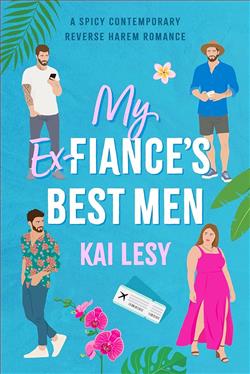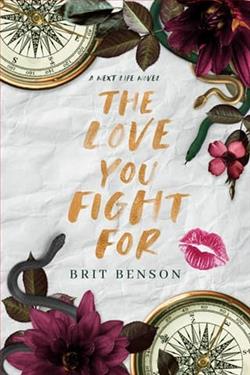Page 43 of The Promises We Broke
"Because he was convinced he was toxic to everyone he cared about. Because Regina made him believe that loving people meant hurting them. Because he thought leaving you was protecting you from him."
I felt tears start to burn behind my eyes. "But it wasn't. Leaving hurt more than anything he thought he was protecting me from."
"I know, sweetheart. But eighteen-year-olds don't always make logical decisions when they're in pain."
"And twenty-nine-year-olds do?"
Helen smiled. "Twenty-nine-year-olds have more experience with heartbreak and more tools for handling it. They know the difference between love that hurts and love that heals. They understand that running doesn't solve problems, it just postpones them."
She stood and carried her cup to the sink, then paused at the kitchen doorway. "The question isn't whether you should risk loving him again, sweetheart. The question is whether you can forgive yourself if you don't at least try."
I sat there after she left, staring at my coffee and trying to sort through the tangle of emotions her words had stirred up. Hope and fear all twisted together until I couldn't tell which feeling was strongest.
But underneath it all was one truth I couldn't ignore anymore. I didn't want to be Gage's friend. I wanted to be his everything, the way I'd thought I would be when we were seventeen and believed in promises that lasted forever.
The only question was whether I had the courage to tell him that. But first there was something far more important that I needed to do.
By seven-thirty, I was dressed, over-caffeinated, and as ready as I was ever going to be for the conversation that would change everything. I'd called Xander and arranged to meet him at his office at eight-thirty, but first I needed to acknowledge something I'd been avoiding since yesterday.
I needed to admit that transferring Gage's care wasn't just about professional ethics. It was about choosing him over the safety of clinical distance. It was about deciding that what wecould be to each other mattered more than what I was afraid of losing.
It was about finally being brave enough to find out if love could survive the second time around.
I walked through the rehabilitation center's familiar hallway toward Xander's office, past the therapy rooms where I spent most of my working hours. His space was tucked into the corner of the building. Functional, comfortable, and slightly chaotic in the way that distinguished his domain from the rest of our carefully organized facility. Medical journals stacked on every surface, family photos tucked between diplomas, a coffee maker that I knew from experience looked like it had seen better days but still produced something that could charitably be called caffeine.
He was waiting for me with two cups of that questionable coffee and an expression that suggested he'd already guessed why I was there.
"So," he said, settling into the chair across from his desk instead of behind it. "How long have you been planning to transfer his care?"
I blinked. "How did you...?"
"Because I've been watching you both pretend you're not circling each other like teenagers with crushes, and yesterday something shifted. Plus, you look like you haven't slept, which means you've been thinking in circles about something that has a clear professional answer but a complicated personal one."
I took a sip of coffee to buy myself time and immediately regretted it. "Your coffee is terrible."
"Blake tells me that daily. Don't change the subject."
"I can't be his therapist anymore." The words came out in a rush. "I thought I could handle it, thought I could maintain professional boundaries and help him heal and keep my feelings out of it, but I can't. Every time I touch him during therapy,every time I see him making progress or struggling with setbacks, I'm not thinking like a clinician. I'm thinking like..."
"Like someone who cares about him in ways that go beyond professional interest."
"Like someone who's falling in love with him all over again," I said quietly. "And that's not fair to him. He needs a therapist who can focus on his recovery, not someone who's fighting the urge to hold him every time he's in pain."
Xander leaned back in his chair, studying my face with the kind of attention that made me feel like he was seeing more than I was showing. "Can I ask you something, and will you give me an honest answer?"
I nodded.
"Do you think your feelings are compromising the quality of care you're giving him? Are you making treatment decisions based on what's best for him as a patient, or what feels emotionally satisfying for you as someone who cares about him?"
The question hit like a physical blow because I'd been asking myself the same thing all night. Yet, even now I still wasn't sure about the answer.
"I don't know. I want to believe I'm still being professional, but yesterday when I saw he'd set back his recovery doing that demolition work, my first instinct wasn't to evaluate the damage clinically. It was to want to take care of him. To make sure he wasn't pushing himself too hard because he felt like he had something to prove."
"And that's a problem because...?"
"Because that's not clinical thinking. That's personal. That's what someone who loves him would think, not what his physical therapist should be focused on."
Xander was quiet for a moment, turning his coffee cup in his hands with the same deliberate precision Aunt Helen had usedearlier. The similarity made me wonder if wisdom always came with careful pauses and measured consideration.















